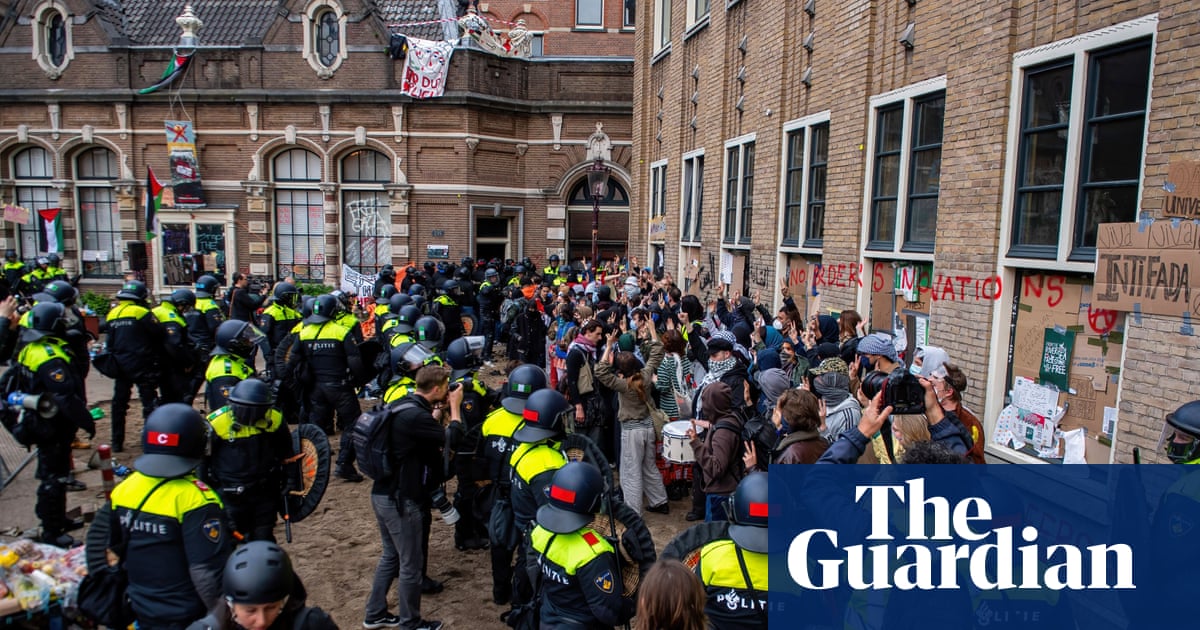
Students Against Discrimination have asked their compatriots to cease paying taxes and utility bills from Sunday to pile pressure on the government
DHAKA: Bangladeshi student leaders on Saturday said they would carry on a planned nationwide civil disobedience campaign until Prime Minister Sheikh Hasina resigned following last month’s deadly police crackdown on protesters.
Rallies against civil service job quotas sparked days of mayhem in July that killed more than 200 people in some of the worst unrest of Hasina’s 15-year tenure.
Troop deployments briefly restored order but crowds returned to the streets in huge numbers this week ahead of an all-out non-cooperation movement aimed at paralysing the government planned to begin on Sunday.
Students Against Discrimination, the group responsible for organizing the initial protests, rebuffed an offer of talks with Hasina earlier in the day before announcing their campaign would continue until the premier and her government step down.
“She must resign and she must face trial,” Nahid Islam, the group’s leader, told a crowd of thousands at a monument to national heroes in the capital Dhaka to roars of approval.
Students Against Discrimination have asked their compatriots to cease paying taxes and utility bills from Sunday to pile pressure on the government.
They have also asked government workers and laborers in the country’s economically vital garment factories to strike.
“She must go because we don’t need this authoritarian government,” Nijhum Yasmin, 20, told AFP from one of many protests staged around Dhaka on Saturday.
“Did we liberate the country to see our brothers and sisters shot dead by this regime?“
The looming non-cooperation campaign deliberately evokes a historical civil disobedience campaign during Bangladesh’s 1971 liberation war against Pakistan.
That earlier movement was spearheaded by Hasina’s father Sheikh Mujibur Rahman, the country’s independence leader, and is remembered by Bangladeshis as a part of a proud battle against tyranny.
“Now the tables have turned,” Illinois State University politics professor Ali Riaz told AFP.
“The regime’s foundation has been shaken, the aura of invincibility has disappeared,” he added. “The question is whether Hasina is ready to look for an exit or fight to the last.”
Hasina, 76, has ruled Bangladesh since 2009 and won her fourth consecutive election in January after a vote without genuine opposition.
Her government is accused by rights groups of misusing state institutions to entrench its hold on power and stamp out dissent, including the extrajudicial killing of opposition activists.
Demonstrations began in early July over the reintroduction of a quota scheme — since scaled back by Bangladesh’s top court — that reserved more than half of all government jobs for certain groups.
With around 18 million young Bangladeshis out of work, according to government figures, the move upset graduates facing an acute employment crisis.
The protests had remained largely peaceful until attacks on demonstrators by police and pro-government student groups.
Hasina’s government eventually imposed a nationwide curfew, deployed troops and shut down the nation’s mobile Internet network for 11 days to restore order.
But the clampdown provoked a torrent of criticism from abroad and failed to quell widespread rancour at home.
Crowds returned to the streets in huge numbers after Friday prayers in the Muslim-majority nation, heeding a call by student leaders to press the government for more concessions.
European Union foreign policy chief Josep Borrell this week called for an international probe into the “excessive and lethal force against protesters.”
Home Minister Asaduzzaman Khan told reporters last weekend that security forces had operated with restraint but were “forced to open fire” to defend government buildings.
At least 32 children were among those killed last month, the United Nations said Friday.











